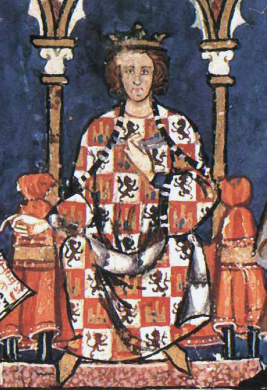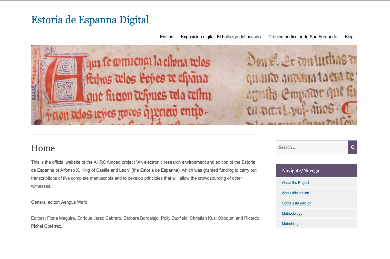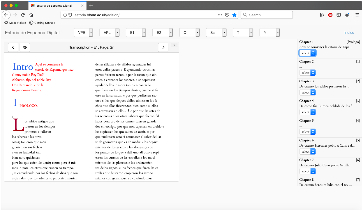Transcribeestoria is a pilot project which aims to engage a broad public in the study of the middle ages in Spain. You will help us to transcribe one of the earliest manuscripts of the Estoria de Espanna - known by the siglum C, from the Biblioteca Nacional de España, Madrid(MS 12837). It is a fourteenth-century manuscript of 148 folios, and as you will see, it is a beautiful example of a medieval codex. The Estoria de Espanna Digital project seeks to transcribe all of the manuscripts of Alfonso el Sabio’s history of Spain, and you can help us understand better the way in which manuscripts relate to each other - how texts were written and rewritten over the years.
We will train you to understand the central elements of medieval writing - you will learn to recognise the different characters and abbreviations scribes employed in writing their texts. You will learn to read the original manuscript text and copy it into our digital transcription desk. Our project seeks to represent as much of the form of the manuscript as possible, so we will ask you to type what you see!
Over 10 weeks we will work together on 5 fragments of the Estoria de Espanna which cover different elements of the history of Spain - e.g. Roman history, Islam, Judaism and the origins of the Christian kingdoms of the Peninsula. You can participate in online debates and discussions over all aspects of medieval manuscripts and history in our project blog.
You can then go on and help us to transcribe other sections of this wonderful manuscript and thereby aid ongoing academic research on the subject.
Above all, we hope you will enjoy our exploration of the unique world of medieval manuscripts and the writing of history.

Professor Aengus Ward is Professor of Medieval Iberian Studies at the University of Birmingham. He has published a range of works on the writing of history in medieval Spain. His current project concerns the effect of digital culture on our understanding of and interaction with the past. He is a native of Dublin, and that is, indeed, the correct spelling of his name..!

Dr. Polly Duxfield worked on the Estoria de Espanna Digital and the digital edition of the Crónica particular de San Fernando. Within Transcribe Estoria she is principally involved in the crowdsourcing aspect to the project, which brings together her interests in the digital editing of medieval prose, and pedagogy, drawing on her background as a schoolteacher. Twitter

Dr. Ricardo Pichel is a researcher at the universities of Alcalá (GITHE) and Santiago de Compostela (FILGA). His main lines of research are the study of archival sources and Iberian medieval literary and historiographic prose. He currently leads the research project 'HERES. Iberian and New Spanish Textual Heritage. Recovery and Memory', financed by the Talent Attraction Program of the Community of Madrid (2019-23).Website

Alfonso X, known as el "Sabio", or the Learned, (1221-1284), was the king of Castile and Leon between 1252 and 1284. One of the most important figures of the European later middle ages, he was the intellectual author of histories, scientific works, law codes, translations from Arabic and other languages, and literary works.
You can find out more about Alfonso in the digital edition of the Estoria de Espanna, here, or in the digital exhibition about Alfonso and the Estoria here. There is extensive information at the page dedicated to Alfonso and his works at the Biblioteca Virtual Miguel de Cervantes.

The Estoria de Espanna is the chronicle of Spain composed by, or under the direction of, Alfonso X, the Learned, king of Castile and Leon, around the beginning of the 1270s (although work on the project had probably begun a long time previously). It is the history of Spain from its legendary origins up to the death of Ferdinand III, the Saint, father of Alfonso, in 1252. It is the first, and perhaps the greatest, history of Spain written in Spanish. Continue reading here


The Estoria de Espanna Digital is the first digital edition of a major work of medieval Castilian prose. It aims to bring together in one place, all of the manuscript evidence for the Estoria and to link these texts in creative ways.
By taking part in Transcribe Estoria you will help to expand our knowledge of the Estoria and the writing of history in medieval Iberia as any additional transcriptions that you do will be checked by the Estoria team and eventually added to future versions of the edition.
To be able to transcribe manuscripts an contribute to our research, users need to register on our site. To sign up click here to register. Once registration is completed and you can start transcribing.